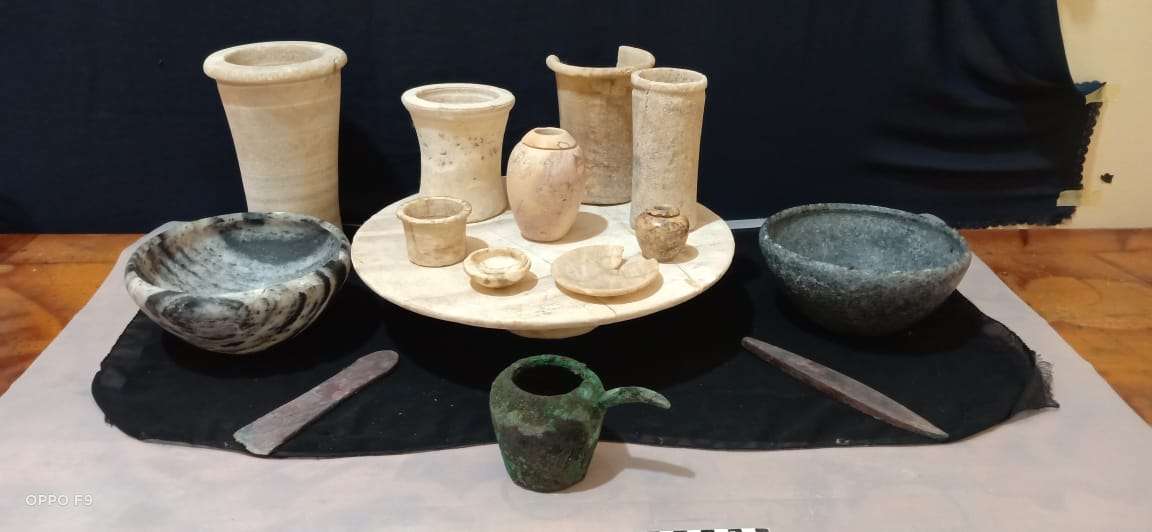The Egyptian archaeological mission working at the Koom Aziza site, El-Beheira unearthed the relics of a pottery workshop that dated back to the Grece-Roman period.
Dr. Mostafa Waziri, the secretary-general of the Supreme Council of Antiquities, said that this workshop could be established between 3 BC, and 1 BC and the mission succeeded in unveiling various parts of the workshop including space where the mud and clay mixed, and the area of forming and designing, and the ovens used in manufacturing the potteries.
He added that several pots, metal tools, and pieces of objects were used in the process of production.
The site reflected the nature of the pottery industry with its full stages of production.
In the same context, Dr. Ayman El Ashmawi, the director of the Egyptian Antiquities Sector at the Supreme Council of Antiquities, that the discovered ovens were built from bricks, and surrounded by updraft kilns from mud-bricks. In addition, several forms of tubes were founded at the site, in addition to, unfinished potteries.
On his side, Ibrahim Sobhy, the head of the archaeological mission, revealed that a group of blocks and houses were found, alongside pots and cooking ovens, coins, and granaries.
He concluded that some tombs were unearthed and they contained some skeletons which may reflect that this area originally belonged to the dynastic Ancient Egyptian period to the Roman era.
Contributed by: Rana Atef





















